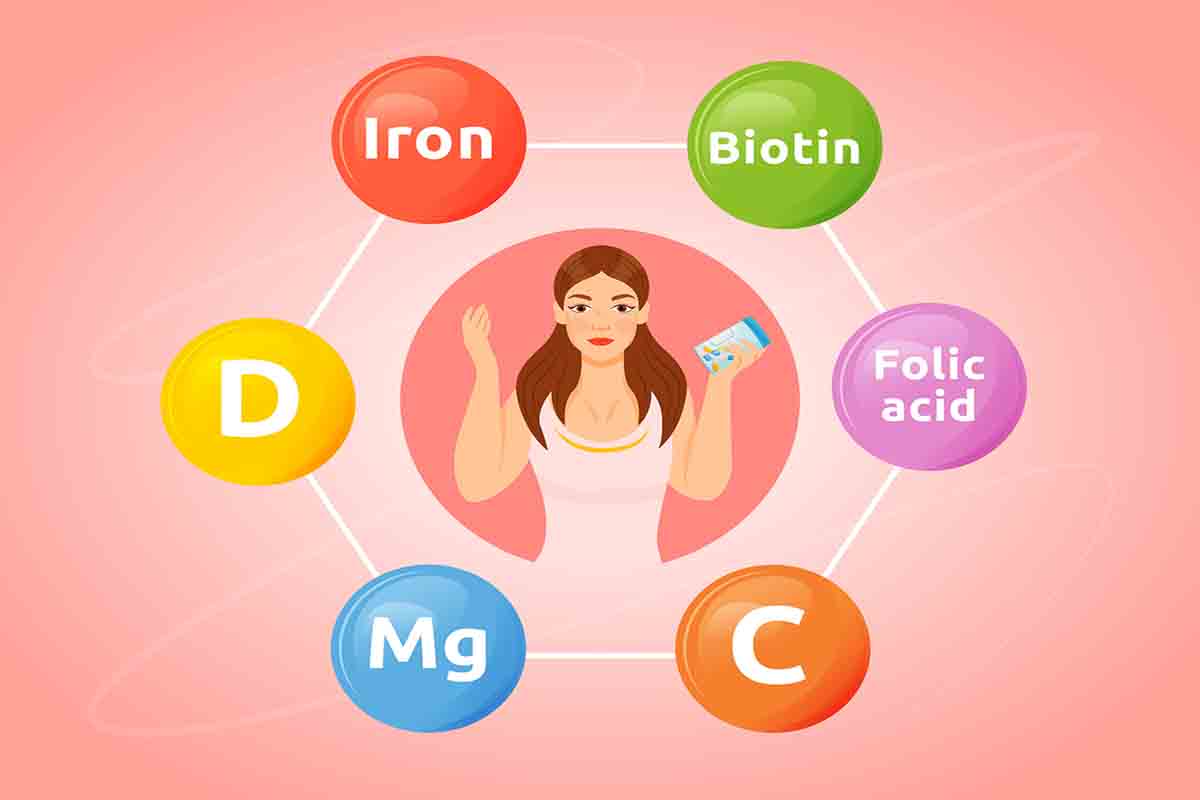Prenatal Vitamins: The Benefits and Ingredients to Avoid

A healthy diet is imperative throughout pregnancy. This ensures that your growing baby gets all of the necessary building blocks throughout their development. There will be days when your daily meals will not provide you and your baby with everything you need. That is why a prenatal vitamin is so important! However, with so many products on the market, it can be hard to determine what to look for in this essential multivitamin for expectant moms. We break down what the best prenatal vitamins should contain to help you guarantee a healthy pregnancy.
Related: Nutrition Before, During, and After Pregnancy
What Is A Prenatal Vitamin & Why Is It Important?
A prenatal vitamin is a supplement that provides pregnant women and women trying to get pregnant with the necessary building blocks to successfully create and support life. Being a mom is a big job and it all starts with having the right tools before conception occurs. What this means is that any woman who is sexually active and of reproductive age should be taking a daily prenatal vitamin. Why?
The first few weeks of pregnancy are the most crucial time in your baby’s development. This is when your baby’s brain, heart, and spinal cord begin to form. However, most women are not even aware that they are expecting during this time frame. In fact, it is normal to go up to seven weeks before discovering this exciting news.
Additionally, 45% of women experience unintended pregnancies, making a multivitamin even more important. Whether or not your pregnancy was planned, if your diet is lacking in certain vitamins and minerals, it increases the likelihood of your baby developing birth defects. Moreover, once you conceive, your body will begin to prioritize your baby over you. That means it will draw vitamins and minerals from your body to support the growing fetus.

Best Prenatal Vitamin Ingredients
During pregnancy, you will need to increase your intake of certain vitamins and minerals. Here are the key nutrients as well as the recommended doses to look for when shopping for a prenatal vitamin.
Folic Acid
Folic Acid is the synthetic form of the naturally occurring B vitamin called folate (B9). This nutrient is vital in the proper formation of a healthy baby. It is responsible for the production of white and red blood cells as well as DNA and RNA. Research shows that “if women consume multivitamin supplements containing folic acid during the periconceptional period, the number of children born with serious malformations (such as spina bifida and anencephaly) could be reduced by half.”
Since neural tube defects most commonly occur during the first trimester, specifically within the first six weeks following conception, getting enough of this vitamin is imperative. Otherwise, detrimental deficits in your baby’s central nervous system can occur, which cannot be reversed.
Legumes, dark leafy greens, citrus fruits, and beets are all fantastic items to include in your diet to help increase your folate intake. However, you will need to consume 600 mcg of folic acid each day, so taking a prenatal vitamin can help to ensure that you get the proper dosage.
IMPORTANT NOTE: A large percentage of the population has a genetic condition that inhibits them from processing this essential vitamin. If you have the MTHFR gene mutation, it is imperative that you speak with your healthcare provider about folic acid supplementation. 5MTHF, L-Methylfolate, or Levomefolic Acid are all active forms of folate that people with this hereditary condition can absorb.
Omega-3 Fatty Acids
Docosahexaenoic acid, otherwise known as DHA, is a type of omega-3 fatty acid that is essential to fetal development. More specifically, your baby’s eye and brain development require at least 200 milligrams of this type of fat each day. Fish like salmon, tuna, and trout are extremely high in this nutrient.
However, The American College of Obstetricians and Gynecologists (ACOG) recommends that pregnant women limit their intake of this protein source to 8 to 12 ounces per week to avoid consuming too much mercury. Thus, a prenatal is an easy and safe way to make sure that you are getting enough omega-3s. Best of all, by getting the recommended serving of this fatty acid, you can also help to lessen your risk of preterm labor and increase your baby’s birth weight.
Iron
During pregnancy, your overall blood volume will increase by 50%, which means that you need to pump up your iron intake! Research shows that “pregnant women and rapidly growing infants are most vulnerable to iron deficiency.” This mineral is what supplies oxygen to your baby and helps you to maintain a healthy placenta. Doctors recommend getting 27 mg of iron each day throughout pregnancy, otherwise, you are susceptible to developing anemia.
Furthermore, the demand for this mineral increases dramatically during the third trimester. Without it, you are at a higher risk of developing preeclampsia and your baby is more likely to have a low birth weight. Additionally, instances of postpartum depression increase when you have an iron deficiency.
Red meat, legumes, spinach, and pumpkin seeds are all great options to include in your balanced diet along with dietary supplements.
Unfortunately, though, there is one uncomfortable side effect that comes with increasing your iron consumption — constipation. Drinking lots of water, eating high fiber foods, and talking to your doctor about a safe over-the-counter stool softener and probiotics can all help to remedy this frustrating side effect.
Important Note: Do not assume that all prenatal vitamins contain iron. Many gummy versions will not have this essential mineral. If you choose to take this type of chewable vitamin, make sure to speak with your OB-GYN about the best way to supplement your iron.
Calcium & Vitamin D

Everyone knows that calcium is essential for making your bones big and strong. That is why it is so incredibly important to increase your intake during pregnancy. Both pregnant and breastfeeding moms need at least 1000 mg of calcium a day. Your baby’s bones depend on it!
Moreover, in order for your body to properly absorb this mineral, it is imperative that you also get enough Vitamin D. Aim for 15 micrograms or 600 IUs per day. Milk, yogurt, cheese, and other dairy products are all great calcium and vitamin D sources, but taking a good multivitamin is also crucial. Why?
We mentioned that the body prioritizes the baby during pregnancy. When you are not consuming enough calcium, it will draw out this mineral from your bones and teeth. This can actually lead to osteoporosis and even tooth loss. However, it is also important that you don’t overindulge in your calcium consumption because it can also inhibit the absorption of iron and zinc. It can also cause kidney stones. Thus, take the recommended amount of these key nutrients and drink lots of water to help flush out any excess.
Choline
While you may think you have never heard of choline, it is actually in a lot of the foods in your regular diet! Eggs, red meat, and fish are all brimming with this water-soluble compound. This is crucial for brain function in adults and for brain development in your baby! It can also help to lessen the chances of your child developing neural tube defects. Aim for 450 mg each day.
Iodine
Iodine is a micronutrient essential in brain development. It is also crucial in the regulation of your thyroid function. During the beginning of pregnancy, doctors recommend increasing your iodine to at least 220 mcg each day. You can also find this trace mineral in fish, eggs, and dairy products.
Electrolytes
Additionally, for those unlucky ladies who suffer from leg cramps during pregnancy, it can also be advantageous to increase your intake of potassium, sodium, and magnesium. These electrolytes will help with your fluid balance and blood flow. In addition, they help you to absorb water and maintain proper muscle function.
Interestingly enough, that odd pregnancy symptom where women crave pickles and ice cream may be your body’s way of telling you that you need to increase these important minerals. The pickles are brimming with salt and chloride and the ice cream contains another common electrolyte — calcium. To get a quick dose of all of these nutrients, you can also drink a V8!
What Supplements To Avoid Taking In Excess

Everything is good in moderation. Most prenatal vitamins will include vitamin A, vitamin C, and vitamin E in their formula, but it is imperative that you avoid taking high doses of these compounds. Here is why:
Vitamin A
Vitamin A is crucial for ocular development, immune function, and the growth of your baby’s bones, teeth, and hair. Therefore, it is important to keep your dosage at 770 mcg per day. However, when consumed in excess, it can have detrimental effects on the fetus.
Studies have found that “the main adverse effects associated with excessive vitamin A intake, particularly at the beginning of the first quarter of pregnancy, are congenital malformations involving the central nervous and cardiovascular systems and spontaneous abortion.”
Vitamin C
Vitamin C is another essential nutrient that aids in the development of your baby’s skeletal structure. Pregnant women should aim to consume 85 mg of Vitamin C each day. Unfortunately, too much vitamin C during pregnancy has been shown to decrease placental function and increase the chance of low birth weight. This means that when you are feeling under the weather, avoid taking supplements like Emergen-C or Airborne Vitamin C tablets to boost your immune health.
Vitamin E
Vitamin E helps with immune function during pregnancy as well. The recommended dosage is 22 to 30 mg per day. Again, just like Vitamins A and C, when Vitamin E is consumed in excess, it can trigger an early rupture of the membranes, leading to preterm birth and low birth weight.
When To Stop Prenatal Vitamins
As mentioned, if you are sexually active and not using a dependable form of birth control, it is best to continue taking a prenatal vitamin. However, if you suffer from constipation, nausea, or have a history of kidney stones, it may be best to stop taking these supplements either after giving birth or once you decide to stop breastfeeding. Until then, continuing this vitamin regimen can ensure that your newborn is getting the nutrition that they need to flourish!
Final Thoughts
Taking a daily prenatal vitamin is a simple way to ensure a healthy pregnancy. However, the Food & Drug Administration (FDA) stresses that this should be in addition to eating a balanced diet of fruits, vegetables, grains, proteins, and dairy. When looking for the best prenatal vitamin for you, it is important to talk with your healthcare provider about nutrients to prioritize and the ones to avoid.
Additionally, do not get caught up in the advertising of these supplements. Brand name does not matter. Moreover, many subscriptions promise that their products are formulated by nutritionists and scientists and will be gentle on your stomach. They cannot promise this without altering the dosages of these vitamins and minerals.
Thus, go to the store and look at the label. Determine if the product actually has the necessary vitamins and minerals to meet your nutritional needs. Many doctors can provide recommendations and even give samples to let you see if the specific pill is right for you.

